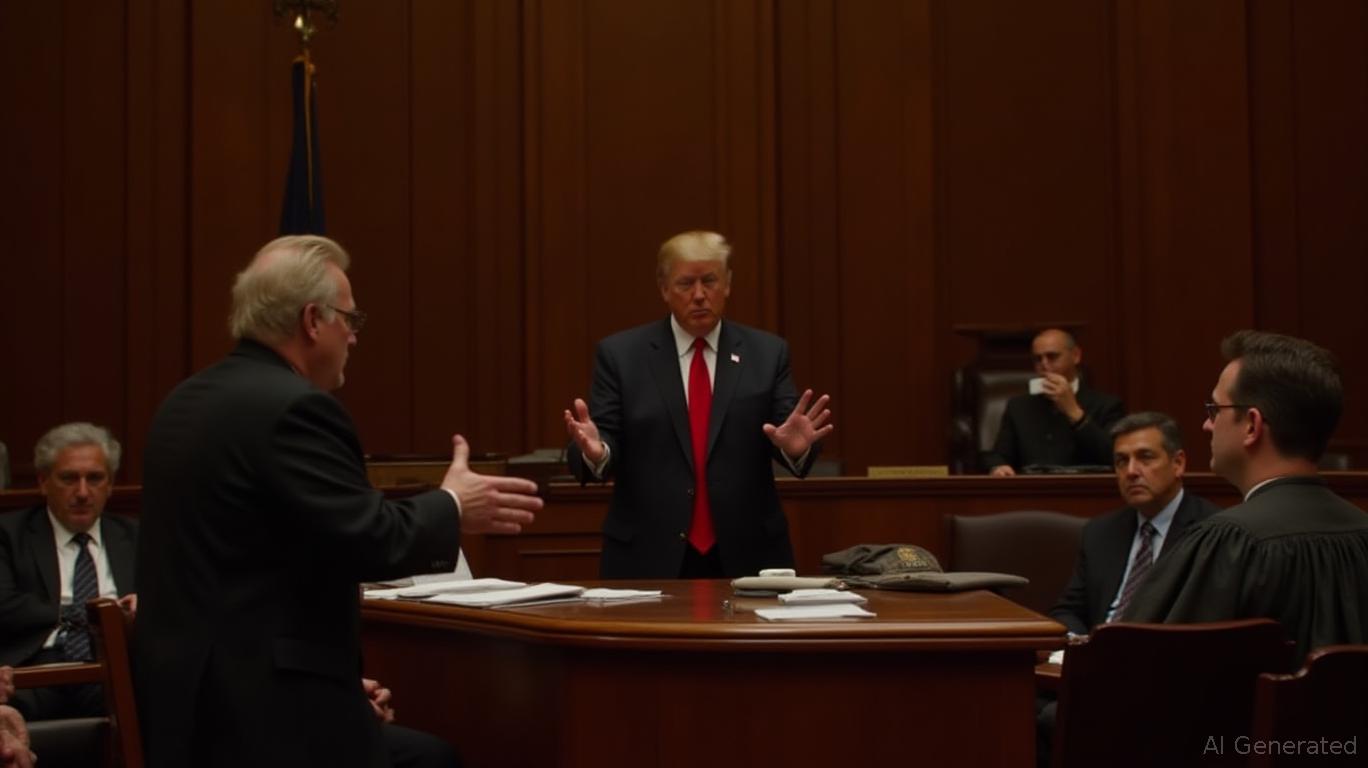Digital currency transactions soar while authorities caution about potential systemic dangers
- Global cross-border payments are accelerating via digital currencies and blockchain, with Citi and Coinbase partnering to enable institutional fiat/digital asset transactions across 94 markets. - IQAX and CargoNPay launched an AI-blockchain eBL platform in China, digitizing shipping documents and reducing freight processing times from days to hours. - Hong Kong expanded e-CNY adoption to 400+ retail outlets, with Bank of China (HK) enabling cross-border conversions to HKD, signaling growing CBDC integrat

Digital currencies and blockchain are fueling a rapid evolution in global finance, as both established players and emerging companies join forces to simplify cross-border payments and boost transaction security. Recent trends point to a growing embrace of decentralized technologies, increased regulatory attention, and the practical use of tokenized assets in real-world scenarios.
Citi has joined forces with the crypto platform
In logistics, IQAX and CargoNPay have introduced an AI-powered electronic Bill of Lading (eBL) solution, digitizing trade documentation in China, as reported by
Hong Kong is quickly embracing China’s digital yuan (e-CNY), with nearly 400 convenience stores and vending machines now accepting the currency, according to PA NewsLab. Bank of China (Hong Kong) has upgraded payment systems for Circle K and FreshUp, allowing e-CNY payments that are instantly converted to Hong Kong dollars for cross-border settlement. This rollout highlights growing trust in digital currencies for daily transactions, especially as regulators consider ways to incorporate tokenized deposits, stablecoins, and central bank digital currencies (CBDCs) into the financial system.
Despite the pace of innovation, regulators remain vigilant. The People’s Bank of China (PBOC) has cautioned that stablecoins could threaten monetary sovereignty and financial stability, pointing to shortcomings in anti-money laundering (AML) controls and customer verification, as reported by Coinotag. Governor Pan Gongsheng reaffirmed ongoing efforts to curb domestic crypto activity and closely observe international stablecoin projects, including Japan’s JPYC and South Korea’s KRW1. These warnings echo global concerns, with the Financial Stability Board (FSB) noting that stablecoin circulation surpassed $150 billion by mid-2025.
The intersection of blockchain, digital assets, and institutional finance is transforming cross-border payments. While initiatives like the Citi-Coinbase platform and IQAX-CargoNPay’s eBL system showcase improved efficiency, regulatory policies will be crucial in shaping how quickly these solutions are adopted. As Hong Kong and other markets experiment with digital currency integration, industry participants must carefully balance innovation with regulatory compliance to minimize systemic risks.
---
Disclaimer: The content of this article solely reflects the author's opinion and does not represent the platform in any capacity. This article is not intended to serve as a reference for making investment decisions.
You may also like
Bitcoin Updates: Federal Reserve's Careful Approach and ETF Withdrawals Lead to $1.13 Billion in Crypto Sell-Offs
- Cryptocurrency markets crashed on Nov 3, 2025, with $1.13B in liquidations as Bitcoin fell below $107,500 and altcoins dropped over 6% amid Fed policy uncertainty. - Federal Reserve Chair Powell's cautious stance on rate cuts and ETF outflows—including $1.15B from BlackRock—exacerbated sell-offs, boosting dollar strength and risk aversion. - October's "black swan" event—$19.37B in 24-hour liquidations—set the stage for November's turmoil, with Solana and Dogecoin losing 60–80% of value during prior volat

Supreme Court Decision on Tariffs May Reshape Limits of Presidential Authority
- U.S. Supreme Court will rule on Trump's IEEPA-based tariffs, testing presidential power limits under constitutional law. - Lower courts invalidated tariffs, arguing Congress retains tariff authority under Article I despite IEEPA's emergency powers. - "Major questions doctrine" could limit executive overreach, but conservative justices may split on emergency powers interpretation. - Trump threatens retaliation by reimposing tariffs via alternative statutes if IEEPA case fails, complicating but not halting

Stellar (XLM) Falls 8.2% as Smart Contracts Expand and November Patterns Emerge
- Stellar (XLM) fell 8.2% in 24 hours amid November trends but shows strong fundamentals with 700% smart contract growth and $5.4B RWA volume. - Protocol 23 upgrade boosted scalability to 5,000 TPS, while partnerships with remittance providers and banks drive institutional adoption and low-cost transactions. - Historical backtests reveal XLM typically rebounds 5.3% within 5 days post-crash, though gains fade after 10 trading days due to market volatility. - Analysts highlight Stellar's real-world utility,
Trader With 100% Win Rate Loses $38 Million in Market Meltdown